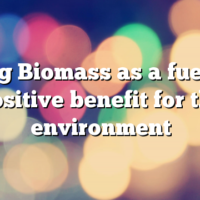From: Bill Powell, 11/2014.
Karl-Heinz Tetzlaff had a vision for a sustainable economy based on hydrogen produced from biomass which he and his former boss Dr Wolfgang Wendel at Hoechst Chemicals preached wherever they could get an audience. In retirement their roles were reversed with K-H leading with ideas and enthusiasm.
I first knew him as my daughter-in-law’s father, a family man and a pillar of his local Lutheran church. When he retired from running the fuel cell laboratory at Hoechst the company gave him a computer and he set to work to write up his ideas in a book ‘Biowasserstoff’ (Bio-Hydrogen). The first part is a mixture of interesting technical insights and something of a rant against conventional thinking be it politicians, Greens, or big business. The second part gives greater technical background for non-specialists.
In parallel K-H set about lecturing in China, US, Italy and also to our Claverton Group. His efforts came to the ear of Romano Prodi (EC President) who had the book translated into Italian. A later edition is entitled ‘Wasserstoff für alle’ (hydrogen for all).
His great fear was that big business with vested interests would block the development of his ideas by patenting them themselves. In order to prevent this he founded H2-Patent GmbH with colleagues and a financial backer which supported his efforts to patent the details of his ideas and his efforts to publicise the general principles. These details include improvements to fuel cells, hydrogen transmission via the gas grid, and the design of an integrated large scale two stage fluidised bed reactor for the very efficient production of hydrogen from biomass.
He studied the biomass resource in the EC and calculated that it is more than sufficient to generate all the hydrogen needed for heat, power and transport in the EC in an efficient hydrogen economy, and still grow ample food. This seemed so astounding that I investigated UK potential. Although Greece, Italy and UK have the poorest resource in the EC I found estimates from sources such as the Centre for Alternative Technology, that the UK ought to be able to supply 40% or so of our energy needs from biomass.
This summer K-H, his wife and brother-in-law were taking their usual holiday on the Baltic coast, which reminds them of their childhood in the east, when K-H started to have double vision. Our grand daughter was also with them but due to return to visit her cousins near Mainz. K-H travelled back to Mainz with her and had a medical check-up. A virulent brain tumour was diagnosed and he died on 11th October. He is survived by his wife Ingrid and daughters Dagmar and Corinna and their families.
H2-Patent had already been taking advice from the Fraunhofer Institute about his ideas and both hope to find funding for a small scale implementation.
For more information see: www.h2-patent.eu and www.bio-wasserstoff.de

